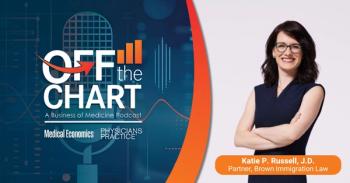
Marketing 2.0
In my practice, patients pay cash for my services. Some are initially confused by this arrangement, but to me it’s simple: you pay me and I’ll be your doctor.
In my practice,
In the general population, there seems to be a paradoxical shortage of truth. In this era where information abounds, we as consumers are now finding ourselves in a crisis of trust. Nowhere is this more pronounced than in the field of healthcare, where trust is that much more important, quality is poorly defined, and transparency in cost and quality is almost nonexistent.
A 2009 Nielsen survey found that
However, when patients feel they can no longer trust their insurance companies to send them to a reliable physician, an interesting thing happens: They rely on the same tried and true mechanisms that they use to guide them in their nonhealthcare consumer decisions. They ask their friends.
Those of us with experience in consumer-directed practices are not surprised to find that word of mouth is the strongest mechanism for attracting new patients. Treat someone well and they will send their friends. Another interesting finding from the Nielsen survey was that just behind word of mouth, and well ahead of virtually every form of paid advertising, was
This makes sense: If you can't think of any friends who might recommend a doctor, go online and see who others are recommending. Web sites such as
As a testimonial to the importance of transparency in healthcare, myriad healthcare rating Web sites like
So what’s the newest and latest marketing strategy to attract patients in the twenty-first century? It’s not print advertising; it’s not a radio or TV spot; and it’s definitely not handing out water bottles bearing your logo at a local 10K run. Here's what works:
- Be a good doctor - your patients will recognize this and tell their friends
- Create buzz - consider bells and whistles (like our logoed keychain flash drive containing a patient’s medical record) that might set up an opportunity for patients to talk about your practice
- Reward good behavior - in our practice we acknowledge
patient referrals by mailing out thank-you cards and a voucher for a free massage
- Encourage online feedback from your patients - in our practice we send an e-mail to our patients with a link to leave feedback
David Albenberg, MD, a board-certified family medicine specialist, opened South Carolina’s first retail medicine primary-care practice, Access Healthcare, in 2003. He focuses on disease prevention and wellness maintenance. He can be reached at
Newsletter
Optimize your practice with the Physicians Practice newsletter, offering management pearls, leadership tips, and business strategies tailored for practice administrators and physicians of any specialty.






